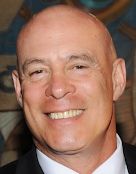Psychologist Jeffrey Mishlove in “Beyond the Brain: The Survival of Human Consciousness After Permanent Bodily Death,” argues that consciousness is fundamental.
For centuries, scholars have recognized Occam’s Razor as the fundamental rule of explanation itself. The preferred explanation is always the one with the fewest assumptions that can account for all the relevant facts. There is almost universal consensus concerning this principle. In scientism’s dark age, we have deviated from this important principle by presuming dead matter is the foundation of reality. That’s why we say when something is important to us, it matters. In this dark age, we give precedence to external sensations over intuitions and feelings. That’s also why, when we agree with some statement, we say it makes sense. These ideas, elevating the importance of materiality and sensation, are so deeply ingrained we don’t normally even consider whether or not they are valid.
Paradoxically, all philosophy begins in the mind – and not in matter. Descartes made this explicit with his simple statement in Latin: Cogito ergo sum. I think, therefore, I am.
We each have direct knowledge of our mind. Nothing is more immediate and intimate. We lack direct access to anything else but mind. The great twentieth-century physicists, such as Erwin Schrödinger and Max Planck, understood this. Planck, the founder of quantum physics, famously said:
"I regard consciousness as fundamental. I regard matter as derivative from consciousness. We cannot get behind consciousness. Everything we talk about, everything that we regard as existing, postulates consciousness."
Planck’s position – an explicit statement of idealist metaphysics – is neither a fringe, nor outdated, viewpoint. Richard Conn Henry, Academy Professor of Physics and Astronomy at Johns Hopkins University, published a similar perspective in Nature in 2005. He wrote:
"Physicists shy from the truth because the truth is so alien to everyday physics... The universe is immaterial – mental and spiritual."
Unfortunately for the subject matter at hand, for many people, “immaterial” means irrelevant! This is yet another example of scientism’s distorting influence.
If Max Planck was correct and pure mind-at-large, as the fundamental category of reality, suffices to explain all knowledge – then there is no need to postulate dead matter as an extra category of existence! Idealism, the position the universe is essentially mindlike, satisfies the parsimony requirement in the metaphysical domain. Metaphysical idealism is a worldview where postmortem survival is both natural and expected.
Note by Robert Traer: For scientific arguments in support of a post-materialist science, see https://rtraer.com/post-materialist-science.html.
Jeffrey Mishlove’s essay, “Beyond the Brain: The Survival of Human Consciousness After Permanent Bodily Death,” received first prize in the 2021 Bigelow Institute’s challenge to provide proof for the survival of human consciousness after death. Footnotes in Mishlove’s essay and videos he refers have been removed in this presentation but are available in his essay, which may be downloaded at https://bigelowinstitute.org/contest_winners3.php. Mishlove is a licensed clinical psychologist, author, and host on YouTube of “New Thinking Allowed.”





No comments:
Post a Comment